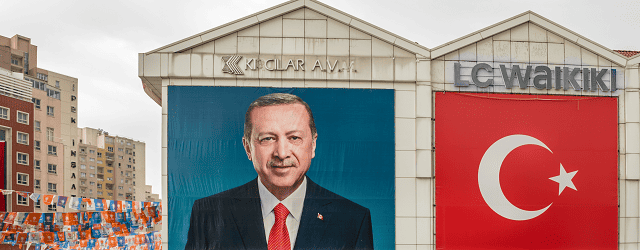Erdoan's political future is secure, Turkey's economic outlook is not.

In the end, last-minute opinion polls suggesting the opposition was closing the gap with Turkish President Recep Tayyip Erdoan proved quite wrong. The elections on May 24 were a triumph for Erdoan and his governing AKP/MHP alliance. In handing him both the presidency and a parliamentary majority, Turkish voters made him their most enduring leader since the republic’s founder, Mustafa Kemal Ataturk.
Although he is master of almost all he surveys—with Turkey’s transition to a presidential system, the leader’s authority is almost total—Erdoan faces one challenge he can’t simply bend to his will: the economy.
The Turkish lira has emerged, by default, as the president’s main opposition. Pressures on the currency include concerns about the rule of law; infringement on political and media freedoms; government overspending; inflation (around 11% currently); impingements on the independence of the central bank; Ankara’s military involvement in Syria; and its growing closeness to Moscow at the expense of the EU and the US, its main trading and investment partners. The currency has lost around 30% of its value in the last 18 months, and some 20% since January.
“We are expecting an abrupt slowdown, reflecting the depreciating lira and its impact on economic imbalances and inflation, which will increasingly impact on household incomes and consumer spending,” says Jason Tuvey, emerging markets analyst at Capital Economics. Despite a firm first quarter for Turkey, when GDP grew some 3.5%, “we could be looking at year-on-year growth slowing to zero, with GDP growth in some quarters straying into negative territory,” Tuvey says.
Little recovery is expected next year either—maybe around 2.5%, well down from the torrid 7.4% Turkey recorded in 2017. Investment inflows will likely stay weak, despite Turkey’s desperate need for foreign capital inflows to finance its ambitious infrastructure plans ahead of 2023. “Investors will remain wary, particularly if no evidence of reform becomes evident,” Tuvey says.
The lingering question is whether the president, even with the vast power now vested in him, has the political leeway to push an economic program through. He received the support of around 53% of voters, yet the remainder, including most of the urban population, remain resolutely opposed to him and what they see as his authoritarianism and threats to Turkey’s secular traditions. Although the opposition did not win, it united behind Republican People’s Party candidate Muharrem Ince, who remains well-positioned to continue to channel opposition against Erdoan and his government.



